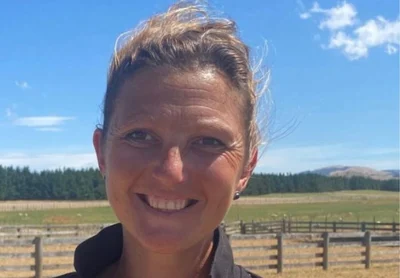The Rural Athlete mindset

In a society where mindset, health and wellbeing, and resilience are common discussion topics I would like to challenge all who work in the food and fibre sector to rethink how they see themselves.
Our mindset is a ‘way of thinking,’ a set of beliefs that we hold about ourselves. Our beliefs and how we think directly influence how we feel and how we behave. Research has shown that our mindset plays a significant role in determining our day-to-day and life outcomes.
If we can understand our mindset, and be able to adapt it, this can have positive effects on our health and wellbeing and can reduce our stress levels.
Increasing our health and wellbeing is known to help us to build resilience, meaning we are better able to deal with the unique challenges of the food and fibre sector, adverse events, stresses of isolation in rural communities and personal problems.
If you asked most people in the sector what the ‘tools of their trade’ are, the answer you would get would be machinery, tools, and equipment.
It is common knowledge that those tools of the trade need maintenance to be kept in good working order and safe so that they will not be an injury risk when used. Those tools of the trade need to be fit for purpose, now and for the future. However, I see our most essential and valuable ‘tools of the trade’ to be our bodies and minds.
The physical capacity and capabilities of individuals in a workforce are the most important resource of any business.
Maintaining good physical health, mental health, and movement health, looking after the ‘tools of your trade,’ is essential to ensure that individuals are able to perform well every day, now and for the future.
At the heart of the work I do is my desire to see a paradigm shift in thinking in the food and fibre sector. I hope to see a mindset shift to where individuals acknowledge that THEY are the most essential tool of their trade.
One group of people who are well known for adopting this mindset is athletes. Athletes acknowledge that their bodies and mind are the most essential and valuable tools of their trade.
An athlete’s capacity for income and longevity of career relies upon their ability to feel well, move well, and perform well.
Injury risk is multifactorial, meaning the more factors you stack on top of each other, the higher the risk for injury.
Therefore, movement health, physical health, mental health, having healthy eating habits, sleeping well, breathing well, taking time for recovery, and managing stress are all important factors for any athlete to focus on and maintain, to ensure that they reduce injury risk and can perform well every day and into the future.
If you look up the definition of an 'athlete' we can see it as a person possessing natural skill or who trains in activities that require physical strength, agility, or endurance.
An athlete is characterised by dedication, focus, intelligence, and work ethic. Athletes are paid to use the tools of their trade, their body and mind, to perform daily.
To me, these descriptors sound exceedingly like any farmer, grower, shearer, wool handler, forestry worker, fisherman, or food and fibre sector worker that I know!
If you use the tool of your trade, your mind and body, to perform daily; you are an athlete.
If you are working in the food and fibre sector, no matter what your current fitness level; you are an athlete.
I am passionate about encouraging a paradigm shift in thinking in the food and fibre sector; it is time to adopt a ‘Rural Athlete’ mindset.
Kristen Dieffenbach, associate professor of athletic coaching education at West Virginia University and sports psychology consultant, said:
“Calling yourself an ‘athlete’ can play an important role in how you see yourself and how you ultimately perform.
"Everyone should think of themselves as athletes. It’s not reserved for people who get a paycheck from it.”
Dieffenbach also suggests trying to acknowledge that you are living an ‘athletic lifestyle’ through your commitment. If you get up every morning, put your shoes on, show up, try hard, and complete your tasks, then you are an athlete.
Bill Bowerman, the co-founder of Nike said:
“If you have a body, you are an athlete.”
With the productivity, profitability and sustainability of agri-businesses relying upon the performance of their workforce making sure that all individuals feel well, move well, and perform well should be an integral part of any business's injury risk management and health, safety, and wellness policy.
This idea is becoming more commonplace across the sector, with new farm plans including a section for planning health and wellbeing strategies.
If the food and fibre sector takes a proactive approach, developing integrated health strategies which support workers' physical, mental and movement health, this will in turn have a knock-on positive effect on growing happy and healthy rural communities.
At the heart of any new strategy is a change in mindset. If you work in the food and fibre sector, I hope for you to be empowered to value your body and mind as the most essential tools of your trade, and to think like an athlete.
When you look after yourself like an athlete, you will feel better, move better, and perform better. This is the ‘Rural Athlete’ mindset.
By Laura Hancock
www.ruralworks.co.nz
